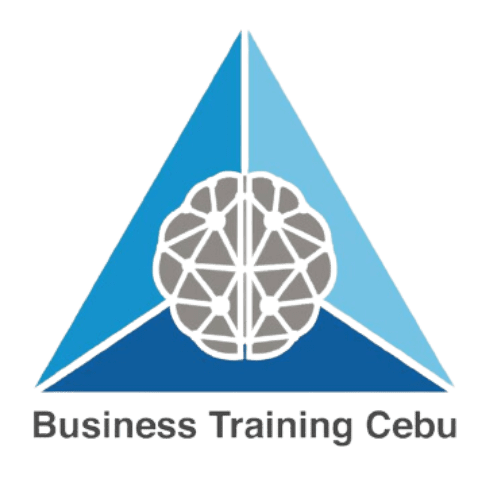Understanding Organizational Culture in Cebu: A Key to Business Success
Understanding Organizational Culture in Cebu: A Key to Business Success


Organizational culture plays a pivotal role in shaping the success of businesses, especially in a dynamic environment like Cebu, where diverse industries are thriving. The culture of an organization encompasses its values, beliefs, behaviors, and practices, influencing how employees interact, make decisions, and approach their work. For companies in Cebu, fostering a positive organizational culture is essential for attracting talent, enhancing employee engagement, and driving overall performance.
This article explores the significance of organizational culture in Cebu, its key components, and strategies for building and maintaining a strong culture that aligns with the unique characteristics of the region.
The Importance of Organizational Culture in Cebu
Cebu has become a major business hub in the Philippines, attracting both local and international companies. As competition increases, organizations must cultivate a strong culture to differentiate themselves and succeed. Here are some reasons why organizational culture is particularly important in Cebu:
- Attracting and Retaining Talent: In a competitive job market, a positive organizational culture can attract top talent and reduce turnover rates. Employees are more likely to stay with companies that share their values and provide a supportive work environment.
- Enhancing Employee Engagement: A strong culture fosters employee engagement and commitment. When employees feel aligned with the organization’s values, they are more motivated to contribute to its success.
- Driving Performance and Productivity: Organizations with a positive culture often experience higher levels of productivity and performance. When employees are engaged and aligned with the company’s mission, they are more likely to go above and beyond in their roles.
- Promoting Innovation and Collaboration: A culture that encourages open communication and collaboration fosters innovation. Employees feel empowered to share ideas and take risks, leading to creative solutions and improvements.
Key Components of Organizational Culture
Understanding the key components of organizational culture can help businesses in Cebu develop a culture that aligns with their goals and values. Here are the essential elements that make up organizational culture:
1. Values and Beliefs
Values are the core principles that guide an organization’s behavior and decision-making. They shape the company’s identity and provide a framework for how employees interact with each other and with clients. Common values in Cebu’s business environment might include:
- Integrity: Honesty and ethical behavior are fundamental in building trust and maintaining strong relationships with customers and stakeholders.
- Respect: Valuing diversity and treating all employees with respect fosters a positive work environment.
- Excellence: A commitment to high-quality work and continuous improvement drives success and enhances the organization’s reputation.
2. Norms and Practices
Norms are the unwritten rules that dictate how employees behave within the organization. They influence how work is done, how decisions are made, and how employees interact. Common practices in Cebu’s workplace culture may include:
- Collaboration: Encouraging teamwork and open communication among employees to achieve common goals.
- Feedback and Recognition: Regular feedback and recognition of employee contributions to promote motivation and continuous improvement.
- Work-Life Balance: Supporting a healthy work-life balance by offering flexible work arrangements or wellness programs.
3. Leadership Style
The leadership style within an organization significantly influences its culture. Leaders set the tone for the organization and model the behaviors and values they want to see in their employees. In Cebu, effective leadership may include:
- Participative Leadership: Involving employees in decision-making processes fosters a sense of ownership and engagement.
- Coaching and Mentorship: Providing guidance and support helps employees develop their skills and enhances their commitment to the organization.
- Transparency: Open communication about company goals, challenges, and successes builds trust and fosters a positive culture.
4. Physical Environment
The physical workspace plays a crucial role in shaping organizational culture. In Cebu, businesses are increasingly adopting modern office designs that promote collaboration and creativity. Key considerations include:
- Open Office Layouts: Creating collaborative spaces that encourage teamwork and communication among employees.
- Comfortable Workspaces: Providing ergonomic furniture and spaces that promote well-being enhances employee satisfaction.
- Incorporating Local Culture: Infusing elements of Cebuano culture, such as art or local products, into the office environment fosters a sense of belonging and pride among employees.
Strategies for Building a Strong Organizational Culture
To cultivate a positive organizational culture in Cebu, companies can implement several strategies that align with their values and goals:
1. Define and Communicate Core Values
Clearly define the organization’s core values and ensure that they are communicated effectively to all employees. Incorporate these values into the onboarding process and ongoing training to reinforce their importance.
2. Lead by Example
Leaders should model the behaviors and values they want to instill within the organization. When leaders demonstrate integrity, respect, and a commitment to excellence, employees are more likely to adopt similar behaviors.
3. Foster Open Communication
Encourage open communication by creating channels for employees to share their thoughts, ideas, and concerns. Regularly hold town hall meetings, feedback sessions, and informal gatherings to promote dialogue and transparency.
4. Encourage Employee Participation
Involve employees in decision-making processes and encourage their input on matters that affect their work and the organization. This fosters a sense of ownership and commitment to the organization’s goals.
5. Recognize and Reward Contributions
Implement recognition programs that celebrate employee achievements and contributions. Acknowledging hard work and commitment boosts morale and reinforces the desired behaviors within the organization.
6. Promote Professional Development
Invest in employee training and development to enhance their skills and knowledge. Providing opportunities for growth fosters a culture of continuous learning and demonstrates the organization’s commitment to employee success.
7. Celebrate Diversity and Inclusion
Embrace diversity by creating an inclusive work environment that values different perspectives and backgrounds. Celebrate cultural events and encourage collaboration among employees from diverse backgrounds to strengthen relationships.
8. Evaluate and Adapt Culture Regularly
Regularly assess the organizational culture to ensure it aligns with the company’s goals and values. Gather employee feedback through surveys or focus groups to identify areas for improvement and adapt practices as needed.
Conclusion
Organizational culture is a crucial determinant of success for businesses in Cebu. By understanding the components of culture and implementing effective strategies to build and maintain a positive environment, organizations can enhance employee engagement, improve performance, and foster innovation. As Cebu continues to grow as a business hub, cultivating a strong organizational culture will be essential for attracting and retaining talent, driving collaboration, and achieving long-term success. Emphasizing values, open communication, and inclusivity will create a thriving workplace that reflects the unique spirit of Cebu.
